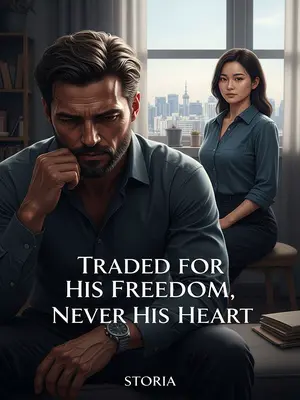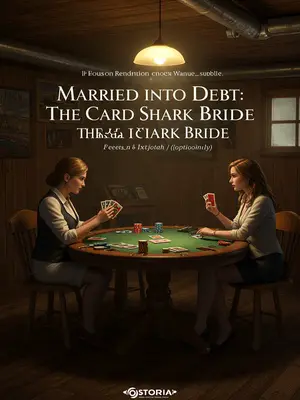Chapter 3: The Other Woman
Half a month ago, a young lady from D.C., the legitimate daughter of a senator, came to town to recover from illness.
As a novelty, I couldn’t help but mention it at the dinner table.
At the time, Jason looked indifferent and said only, “Don’t talk with your mouth full.”
He always spoke little with me.
But one evening, returning home at dusk, I saw that young lady weeping under the maple tree.
Jason held her in his arms.
A rush of blood went to my head. What was I thinking then?
I should have been like Mrs. Harper from next door—the one who runs the fruit stand at the corner. When she learned her husband was cheating, she grabbed a fireplace poker and chased him out.
But two women fighting and scratching is too ugly.
I calmed myself.
Maybe I misunderstood?
If not, I still comforted myself: Even if Jason is talented, he is just a refugee, and she is a senator’s daughter. Even if there is some ambiguous affection, they could never be together.
Yes, that’s how it is.
Natalie was rarely out of her family’s mansion, and I never saw Jason meet her again.
Until one day, it was my birthday. I closed my stand early to celebrate at home. The night before, I found a new hair ornament under my pillow.
I went home full of anticipation.
Jason only gave me a cotton handkerchief, his expression bland as always: “You make pancakes, your hands get greasy. This will be useful.”
“I’m short on money and have nothing better to give.”
But the hair ornament I had been thinking of appeared in Natalie’s hair the next day.
She came to buy pancakes.
Weak and graceful, she said, “I really envy you.”
Others heard and thought it strange.
But at that moment, I understood.
It glittered in the sunlight—my hairpin, the one I’d dreamed of getting. Only now it wasn’t mine. A sour, bitter feeling welled up inside me.
She left with red eyes.
That night, Jason came home with red eyes.
He was very drunk. When I went to support him, he shook his sleeve and pushed me away.
I fell to the ground.
I watched as he staggered, knocking over a chair, his words slurring as he pointed at me with shaking hands. He searched, and found a folding fan in the trunk.
He treated the fan as if it were me, full of resentment, pouring all his anger and regret into every tear of paper:
“Melissa, it was you who shamelessly forced me to pay you back by marrying you.”
“If not for you, I would rather have died in that ditch than become such a heartless and unfaithful hypocrite.”
Always cold and aloof, Jason had tears in his eyes.
“It is I who wronged her, it is I who hurt her.”
“She shouldn’t have waited for me.”
His tone was full of resentment.
It turned out Natalie was his fiancée, who had waited for him bitterly in D.C. for two years.
The man had feelings, the woman had affection.
But I, a wife who appeared out of nowhere, had torn them apart.
He held the folding fan and suddenly used force. With a ripping sound, the fan tore.
Once.
Twice.
The night was very quiet, the sound of paper tearing extremely clear. The only other sound was the crickets, chirping like nothing had changed.
Something in my heart also broke.
I choked back my voice, not daring to make a sound.
Then, Jason sat alone on the back porch, lost in thought under the full moon, murmuring “Natalie,” and finally fell asleep drunk.
I stood dazed under the eaves, tears overflowing and rolling down my cheeks.
The mountain wind was cold, chilling me to the bone.
Jason remembered nothing after being drunk.
But he saw the fan he had torn to pieces on the ground.
Then, as if nothing had happened, he quietly picked it up and put it back in the trunk.
He asked me nothing.
I said nothing either.
But we both knew that something had changed.
The quiet between us grew heavier than before. It was as if every word spoken was weighed and found wanting. The comfort I’d once felt with him was gone, replaced by a cold ache I couldn’t shake.













